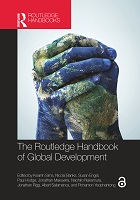Chapter Introduction
Proposal review
Author(s)
Sims, Kearrin
Banks, Nicola
Engel, Susan
Hodge, Paul
Makuwira, Jonathan
Nakamura, Naohiro
Rigg, Jonathan
Salamanca, Albert
Yeophantong, Pichamon
Language
EnglishAbstract
This chapter is to demonstrate the challenges related to free time of seniors (especially EU residents) in the 21st century. The starting point for the considerations was to explain the concept of free time and to specify its characteristics, functions, and ways of using it. The structure of the seniors’ time budget and leisure activities undertaken by this group were analysed (based on Eurostat data). Subsequently, one of the important forms of free time management, that is, tourism, was studied. First, the essence of tourist activity was discussed and the reasons for undertaking it in the autumn of life. Second, the functions of senior tourism were distinguished and data on the participation of seniors from EU countries in it were presented. Third, taking into account that the concept of active ageing is increasingly the participation in various types of courses, trainings, workshops, etc., the chapter defines the place of seniors in the process of lifelong learning. The tasks of the University of the Third Age (U3A) were systematized and the available data on the participation of European seniors in educational programmes were analysed. The conclusion emphasizes the heterogeneity of the silver head segment.


 Download
Download